| David Corcoran |
THoughts and musings
|
For 2021, I set out to read or listen to 52 books, each roughly around 250 pages. Some were longer and others shorter, all in all, they were not short books. in 2020, I only managed 42 books, so this has been an improvement. Some books were repeats from previous years, which offers the opportunity to go deeper with new insights and reviewing previous learnings.
Here I am, in the last week of December and I have reached the end of my 52nd book (see cover above). This was a book I purchased on a whim at the Vienna main train station as I needed to buy something in order to reduce my parking ticket cost. It is a work of fiction, but I would call it, meaningful fiction. The sort of book that changes the way you think about life and how precious it is and what it is all about. The Midnight Library, by Matt Haig, is about Nora, who is extremely unhappy in her life. Through a series of unfortunate events where she feels like her life has no meaning, she decides to take some pills to try to overdose on medication. She doesn't want to live anymore. In the moment of her death, she is transported to a library where she meets a character very similar to her school librarian. This person offers her the chance to try out other versions of lives. All the books on the shelves are the infinite possibilities of others lives, where Nora made different choices that led to different outcomes. Nora initially looks for lives where she could experience being an Olympic swimmer, or not having her cat die or where she still sings in her band. Each offers her a touching personal insight that ultimately leads her to discover that she wants to live in her original life. That is was meaningful. Through a series of climatic twists and turns, she returns to her original life just in time, not fully dying from the attempted overdose. She gets to hospital and is able to make a recovery and turn her life around. For me, it was a gripping read and made me realise the value in life and how what appears to be fulfilling in one sense, comes with difficulty and sacrifice in another. Also, to certain types of fiction which can be quite meaningful. For 2022, I would like to read another 52 books, but this time combine it with some re-reads, as well as some new reads and some fiction. Send me your recommendations!
1 Comment
Often a book comes along, which speaks such profound and simple truth, that you know it will help you shift perspective and learn new things. This book by Derek Sivers, was gifted to me by my fellow Toastmaster Lukas Liebich, when he visited me in Vienna a few weeks ago. I am really grateful he gave it to me. It is full of rich insights into the music industry and is aimed at musicians, but insights are applicable across many role and industries.
It is a short volume which reads a little like a daily journal. Something that after reading it through you could go back to from time-to-time and explore things further. This is a wonderful thing about books and re-reading them. As you continue to grow and develop, so do the insights from the words you read. I look forward to this book being in my list for 2022. The rest of this review will give you an insight into the ideas and pages that resonated with me. This is not an exhaustive list, as I encourage you to obtain the title and read it for yourself. These are simply some of my thoughts and favourite chapters. Restrictions will set you free - Here Derek talks about placing restrictions on yourself so things are not so 'open'. We function better when we have small personal targets to meet. This really resonates with me, as I have a daily set of habits I remind myself to do. This restriction helps me focus my day and get a few more things done. I will go further with this in my future work in 2022. By restricting yourself, you can allow your mind to focus on creating results. You don't get extreme results without extreme actions - This is not a line for a Tony Robbin's workshop, but Derek is highlighting the need to stand out (opposite of normal) and do things others are not prepared to do. Extreme focus, practice and ambition in the case of musicians, will help them succeed. To be 100% in your venture. This is something I certainly would like to improve, as I often spread myself into different ventures. I am certainly focused and get things done, but would like in 2022, to laser into particular areas. Not happy with existing venues? Make a new one - The line in this chapter that really helped me is: "If you're not happy with the way things are, dot's just complain. Go make things how they should be." In other words, create something new. Derek did this in his music career and it sounds like he led the field. Great advice. Sometimes we can create something out of nothing. This is how entrepreneurs work. While Elon Musk and Thomas Edison might have become famous doing it, we can also do it for ourselves. I like this and will check myself next time I complain about something to see what I could create instead. Why you need a database - This chapter really stuck out for me and is one of my main takeaways. Have a database or spreadsheet with notes, tags, contacts and communication history. It helps you to track what you have done and where you can followup and ties in nicely with giving you some restrictions. A weekly goal of adding to the database, taking small steps and keeping track of things. Rather than hoping and leaving things to chance, it helps to keep on top of things. Are fans telling friends? If not, don't promote - This chapter is towards the end of the book and highlights that you need to keep working, improving and creating so that people (fans) want to tell their friends about you and your work. This applies to everything. As a Singer or a Voice Coach, this is important for me and certainly I have picked up a few assignments in the last 6 months as a result of word of mouth recommendations. This tells me I am mixing with the right people in the right direction and having a good effect. Derek points out, we don't want to ask for favours, but create enthusiasm in people so they just want to tell others about you. This is about it for now and as mentioned, there are plenty of other insights you might also like in the book, so order a copy or contact me to discuss. I hope you enjoy it as much as I did if you read it.  Photo by Mark Fletcher-Brown on Unsplash If I asked you to tell me more about your 'purpose' what would you say? What comes to mind when you think of 'purpose'?
For many of us, purpose can feel very tied to the things we do. Our identities of who we are in our daily lives. Our families, companies, job titles and so forth, but purpose goes much deeper than that. Our emotions, can also be clues to living with a sense of purpose. At 6 Seconds, the KCG Model stands for 'Know', 'Choose' and 'Give' and it relates to being more 'Aware', 'Intentional' and 'Purposeful'. Joshua Freedman, the CEO of 6 Seconds, explains in many of his books and videos (he was one of the creators of the model) that all three exist and turn in a circle, going round and round and round. He mentions that you can begin anywhere in the model, but that often the 'Give Yourself' part of the model is where it all links to. In the 'Give Yourself' part of the model there are two competencies, 'Increase Empathy' and 'Purse Nobel Goals'. This week on LinkedIn, I published a video about my Noble Goal which is 'to provide a space where people can become better versions of themselves.' For me to achieve this, I need to think about others and how to best serve them, to go deeper within myself to understand and work with my emotions and to increase my empathy, which is to walk in the shoes of another. I need to be aware and mirror where people might be at and coach them (by guiding from the side) to let them make discoveries that will lead them towards choosing to be better or alter their current situation in some way. Notice that it doesn't include anything specific. No job titles or defined relationships. My purpose is driven from a deeper desire to help someone, be it my family members or clients. This Noble Goal reminds me to live 'with purpose' and to make it a daily activity. This Noble Goal reminds me to take a deep breath and center myself. I am not always perfect here but certainly I can tap into something deeper. I transfer this Goal into being more aware of the my emotions and then choosing a course of action that serves this goal, my clients and colleagues and myself. So what is your Noble Goal? Consider joining Unlocking EQ webinar with 6 Seconds to learn more about the concepts, the KCG Model and how you can tap into your emotions for answers to such questions as 'why am I am' and 'how can I live with purpose'. At the moment, if I asked you think about about the word climate, what other words come to mind?
Most probably, Climate Change, a very real idea we need to think about for our planet. What about your own climate change? What if I said to you, the emotional climate of your group, organisation, family and even yourself, is just as important as the more popular climate change? I am finishing the book 'In the Heart of Leadership' and the last chapter is about organisational excellence, leadership and 'the Climate of Performance'. Joshua Freedman, the books author, talks about organisational culture as the set of rules that tell people how they are supposed to behave. Climate, is a term he uses, for how people feel about it. What is the climate of your workplace like? What is your own emotional temperature and how does it effect this climate? Is there something you can do to change the climate you are in? Do you feel the climate is gloomy, moody and low or is the climate full of joy, enthusiasm and creativity? When I ponder the ideas above in my own life, I think about the climate in my workplaces, my church and even my larger family. Each has it's own climate, partly governed by culture as well as long established norms and ideals, even values. When these values, norms and standard behaviours are broken, so the climate can be effected. COVID-19 is also effecting all of these climates, some differently than others. Freedman talks about the need to think about emotional intelligence (EQ) (being smarter with feelings) at three levels to understand climate. The individual, the relational and the organisational level. Ultimately, we can only control and take care of managing our own emotions, so this is why EQ is crucial at an individual level. Take family for instance, when we lack EQ, we might say or do things that really, truly deeply hurt others. Sometimes irreparably. This damages things at the relational level which will have ripple effects throughout the entire family. Members may not speak to each other, forgiveness is sought but not accepted, people don't speak to each other for some time. Time doesn't heal the emotional wounds that are there. What would happen if we practiced EQ, learned EQ and evolved as a result of EQ? Could we find the emotional language to express ourselves better and to be aware of our emotions, to lead to better choices, to be able to serve a higher purpose. One of allowing our family to prosper? While the book focuses on organisations, I draw conclusions to community groups like Rotary, Toastmasters, Scouts and sporting clubs as well. Some environments are toxic and the climate is not ideal. Joshua says basically 'When employees feel good about coming to work, they perform better.' This surely applies as well to community groups we belong to. This could translate to 'when people feel good about being part of a family, they interact, share and serve each other.' 'When group members feel included as part of the group, valued and appreciated, they contribute more and take on responsibility.' They are invested. In order to create the right organisational or group climate, it is important that the leader as well as those in the group to show trust and connect. Communication is key here to building trust and true, deep connection. This influences the relational level. And it starts with you. Do you communicate with EQ? What does that even look like? Thinking about the KCG Model from 6 Seconds, it talks about Know, Choose and Give yourself. When I work with people, we often explore the Know and Choose parts. In Know, we think about awareness. Are you aware of how you speak to others? What mirrors and feedback do you get from people? If you find people hard to get on with, perhaps it begins with you? Ask someone, 'how do I come across'? Look at how people treat you and ask yourself, what does this data tell me? What do my own emotions (also data) tell me when I speak and communicate with others? Once you are more aware, what choices do you then have? This is the Choose part of the model and for me this is again where you have control. As an Executive Voice Coach, I often encourage people to hug not hit with their sound, something I learned from the Heldentenor Glenn Winslade during my singing career. The same applies to speaking. If you sound like you are rough, shouty, aggressive or rude, chances are this will be affecting the emotional climate of the families, groups and organisations you are apart of. This is under your control. Speak with love and kindness, being aware that your sound and emotions are contagious, and you might get a different result. While COVID-19 is certainly playing around with our cultural behaviours, norms and ideals it is worth reflecting on our part in this and maintaining our EQ in how we communicate with others. Speak with dignity and respect, hug not hit with your sounds and use words that resonate with others. This will positively effect the climates you are in and how you 'show up' in the world. People will relate to your better, help you and ulitmately change the climate of the group or organisation you belong to. Consider how you speak. Reflect on your climates and bring about the climate change you want to see in the world. Both relationally and organisationally as well as to help our whole planet. Perhaps there is a connection between how we communicate and treat ourselves and others, and the world at large. How do you show up in the world? Are you a role model for others?
Joshua Freedman, the CEO of 6 Seconds- who are pioneers in the development of EQ training and research, just did a You Tube post titled 'Are you using the right type of power for success?' in recent days and in it discussed the idea of power. We often think about power being in the form of salary, title or social media likes, but he suggests that we can also have:
This really resonates for me as draw back to my questions at the top. How do you show up in the world? Do you worry about salary, or do you use your power of language, connection and empathy to make someone's day easier? Do you empower yourself with moments of silence and reflection on your values? This is the power we have. All the time. I remind myself as much as I mention it here in this post, as often we forget and get caught up in the feeling of powerless. We often forget that we can influence others and at least take responsibility for our communication. Our language, words and tone. The ability to display empathy by walking in someone else's shoes for awhile. We can serve others by using our power. I encourage your to click on the link above and hear Joshua speak about power. It has been a blessing on my weekend and inspired me to look more deeply at how I express my power this week. I just received Austin Kleon's second book via Amazon! If you read the last review I posted here, you may have guessed it resonated with me! This title so far has disappointed. Part of the reason I am now writing this blog post is because of the inspiration and content in this book 'Show your Work!'.
Some days we feel like we win, others suck and we want to crawl under a rock. Many are somewhere in between. All we have though, are days. One strategy talked about in this book is documentation. That is, regularly highlighting your process through blog's like this one, through social media and other internet tools. Daily. Austin's suggestion is to put out content daily. In small pieces. To let it build up over time. To focus on days. I like his thinking. At the moment, many things can get in the way. New government restrictions which mean you need a negative test result to get a haircut, like Vienna for instance. I am not against this as it keeps us all safe, but today I went to get my test, tomorrow I get my haircut. Sounds simple but it is still a hassle. To get through the experience, I took this book. I am glad I did. I found a space nook of time to get some reading done. Now I am here, writing about it. Inspired to see what other nuggets and gems of wisdom lay within. This is another idea of Austin's. Find time like you find spare change: in nooks and crannies. A tram ride home, while waiting 15 mins for your COVID test result and while drinking your morning cup of coffee, are all good times to read. Learn something new and educate yourself. Daily. Although I don't know Austin personally, I would like to. I think we would get on well. Now, back to the book, before early to bed! Whose books, information, pictures and artwork hav made the biggest impact on you?
Who do you quote in speeches, seminars and presentations? No one is original. We are all creations of those who come before us, just as those who come after us will incorporate what we have created in the world. This is one of the principles behind the book 'Steal like an Artist' by Austin Kleon. I randomly came across his book while watching a media advert on Instagram by Vishan Lakhiani (CEO of Mind Valley), who mentioned Austin's book 'Show your work'. Amazon had three of Austin Kleon's book on special, the first to arrive being this one, Steal like an Artist. I am glad I read it. I wasn't initially interested in this title but it contains some real gems and nuggets of information I am going to try out, which is really the purpose of this blog! Feel free to hold me accountable. One lovely idea put forward in the book is to collect ideas, information and things that you really love. We all have things that resonate and speak to us as people. Collect these things. This book by the way is aimed at everyone, not just those who consider themselves artists. By collecting from many sources, not just one, we are less plagiarizing, as more researching. We are soaking in the masters, mentors and creators who have come before us. These ideas from many sources, may spark out own creations and projects. In my own world a voice coach, I am very much influenced by Julian Treasure, Roger Love, Andy Matheson, Jerry Weismann, Allan Pease and Joshua Freedman. They are just some of the authors who sparked an idea for me or I have taken a concept of theirs and run with it, quoting them and sharing their clips and books with clients. But, we have to write them down! By hand! Austin suggests carrying a notebook and pen with you at all times. I used to do this and I loved jotting things down, as it made me feel that I was on the lookout for things. I remained open and attentive in the world. Less consumer, more creator, so I plan to follow Austin's lead and reimplement this in my life. We cannot remember everything and the act of writing keeps us connected with ourselves. Another wonderful idea is to create an analog space. Austin suggests that digital spaces can suck the life out of our ideas. We become more perfectionist when we work at the same space as our digital tech. He actually has a second desk in his office, with coloured paper, pens and other analog technology. I plan to use my kitchen table for this kind of thinking, as I already journal and read there early in the morning. Allowing a dedicated space for ideas and thinking sounds simple but I think it will be a powerful idea to try out. In times of COVID, having different spaces, chairs or parts of your house for different purposes sounds good. A final idea I want to share with you that I will be implementing having read 'Steal like an Artist', is to keep a Logbook of my day. A summary in brief terms. What did I do and how did I spend my time. What output, excitement and gains did I make? I will add to this Logbook, the idea of a habit tracker, so that I can see my progress. Part bullet journal, part summary of the day, this will allow me to look back on my progress in time to come and see how I spend my time and what gets me results. This isn't meant to be for pursuing goals etc, but it encourages the small steps. To make regular effort towards your creative projects. I could even incorporate this into my ideas book. A small notebook for ideas, habits and a logbook. All analogy. Pen and paper. The book is filled with other great ideas that might resonate with you, so I encourage you to check these out. I am looking forward to receiving his other titles this week, so I can begin to further explore how I am maintain my creativity and to collect, post and engage with the artists, entrepreneurs and thought leaders who have come before me. Thanks to Austin Kleon for his inspiration. When you think of the words 'retire' and 'retirement' what comes to your mind? Is it something you have done or are thinking about? What if retirement is changing and you might need to continue to work for a longer period in order to fund your life and society at large? What might you do differently?
I am listening to 'The 100 Year Life' on Audible by Lynda Gratton and Andrew Scott. Both authors are university professors and have researched what a 100 year life might look like. Statistically, people born in the first decade of the 21st century, will live over 100 years. Those born in the 90's to around 100, in the 80's until their 90's, in the 70's until their late 80'S etc. Their main premise in the book, is that the traditional 3-stage model of life where you grow up, study, work until 60-65 and then 'retire', will cease to exist for those in Gen Y and generations to come. Many factors are at play that create this situation, which the book expertly describes, so what I want to focus on in this article, from a career perspective, is what will you do differently, knowing you will probably work until you are in your 70's or 80's. How does this change your thoughts about your occupation(s), the types of work you do and the way in which you work? As we are currently seeing, COVID has rapidly changed the working landscape. We fumbled at first, but are now steadily seeing the advantages of working from home. Productivity increases, less commuting, perhaps balancing our work with family commitments and other responsibilities are fast becoming the norm. It hasn't been easy for most, but it has created a shift in perception. This shift we can apply to our whole working lives and the meaning we give to work. As a career mentor, I am often fascinated by what work brings up for people. In my own working life so far, I have strived to do activities I am both interested in and skilled in. I have had a variety of jobs and vocations, each calling me to bring my previous skills with me but implement them in a new way. Many years ago, when working in outplacement, the concept of 'active retirement' was given to me, that it is important to not stop work, sit at home and play golf and rapidly deteriorate. Being active in the second half of your life is crucial. So what does this even look like? Coming back to 'The 100 Year Life', Gratton and Scott mention we should be aiming for a 5-stage life, meaning that there are periods of work, rest, redefinition, exploration and play. We cannot think economically or socially of retiring at 65. For some, retiring at 65 could be a reality, based on their earning and saving potential throughout a lifetime, but for the majority this won't be possible as government pensions become slimmer, as fertility rates drop etc. And, what if you don't want to stop as you enjoy work and how you exist in society? I ask you, 'what would you do differently with your work life, knowing you plan to work until you are 80? What choices will you make now that will affect your future? For me, I made this decision awhile ago. To be at peace with working until I am at least 70 or 75. My own father is still happily working in his late 60's and his father after retirement, started a family business and worked in it for 20 years. This example shows me, that redefinition is possible. In the second phase of your working life, it might not be that you need work 50 hours a week to live, but you will still maintain perhaps 20 hours. This allows you to be active, engaged in the community and to offer value. The question for society is how governments and work culture will change to allow this pattern to emerge understanding the value older employees offer. We also need to think of the pressures we place on young people, who are leaving high school. After I finished, I went straight to uni. A gap year was considered strange. Several of my cousins who are much younger than I am , have taken gap years or even time out of their studies to travel, work and explore who they are. Gap years and perhaps a few years of work to find out what you want to do before doing formal study are now normal. This is good. The period of 18-30 is now considered a discovery time. This is part of the 5-stage life. We need to embrace it. So, whether you are early career, mid-career like I am or looking towards 'active retirement' think about what impact you want to have on society and yourself. What dreams, aspirations or new ideas can you generate? Take steps towards these and see what is possible. Imagine a life where you will not retire and deteriorate but remain active for as long as you can, especially as you might just live until 100. "Synchronicity is the coming together of the inner and outer events in a way that cannot be explained by cause and effect and that is meaningful to the observer." Carl Jung
Does this explain times and moments in your life? It does from me. Just this week, I had a conversation with a fellow Coach about Ikigai. He asked me if I had heard of the concept. I have and have pondered it over a coffee, but never read the book. He suggested I do. Literally the next day, a package arrived from my parents in Australia which they sent before Christmas. My present? The book Ikigai by Hector Garcia and Frances Miralles. Coincidence? I have never talked to my parents about Ikigai and they didn't tell me what was in the package. It appeared in my life, just as I thought yes, this applies to my Career Coaching and I want to read it. The next day, someone I follow, who is a thought leader on LinkedIn, shares a post about Ikigai. Strange? The point is, for me, that often we are given signs about certain things. At the moment, the study of Ikigai and how it relates to my work appears to be what I need to read and implement. I can trust it will lead somewhere at some point. Being open to the experience is what I have always valued. I am exploring this with Ikigai. The quote above is by Carl Jung who invented the word synchronicity. I first heard about it from James Redfield in the Celestine Prophecy when I read the book in 1997. This book started my adventure in Personal Development and taught me to look out for synchronicity in my life. Is it part of my imagination though? Am I interpreting these events right? I am interested to know how you have experienced synchronicity or a 'sign' that you are meant to be doing something. When did you get interested in synchronistic explanations for your life events? When I first started singing in 2003 or so, I received a lot of signs. I went to a Clairvoyant on my 23rd birthday (19 years ago tomorrow), who suggested I use my voice. "Radio, singing, that kind of thing, do it you will be good at it." Two weeks later I started with my first teacher John Lander. During my first few weeks of singing, I kept thinking in my mind, 'well if I am good, when can I.... start performing, start doing roles, doing more etc'. Oddly, before I had even opened my mouth, several times, John would mention they need a male chorister for this production, a Freddy Einsford-Hill for this etc, and so I would go, follow this lead and get the part. It was more than just a coincidence and I began to truly believe I was being given signs that I am meant to be a professional singer. The fact that I thought the thought, then the event showed up in mind life, started to change my trajectory. It helped me develop the strong belief that I was going to be a professional singer. I didn't will it, but intelligently made decisions and took chances that lead to specific outcomes. For instance, before I moved to Sydney to study Opera, I received a newspaper article titled 'where are all the tenors?' in an industry magazine from a recital I sang at, from a person I had never met nor would again, invited by my pianist. I auditioned for the course and got in. I wouldn't have heard about it, were it not for the person who came into my life at that exact moment with the information I needed to hear. My life changed dramatically after that and I have since found my calling. I worked in Opera for 8 years, before moving into Coaching. My start in Coaching came at a time when I was faced with a crisis in my Operatic life and I turned to a great friend Eddie, and said 'I want to do more of this'. This being Coaching and conversations that were inspiring. Being uplifted from my conversations with Eddie, I sought out a Coaching qualification I could do while doing Opera fulltime. Right when I had my annual leave holidays from Opera Australia, a Mastery Weekend course kicked off with the Life Coaching Academy. It was a direct fit. It lined up! There was no struggle. Things seemed to flow. Two years on, when my wife and I made the choice to try and move to Europe, we both auditioned for the Vienna Opera Award. My grandfather had been sick at the time and one the day of his funeral, my wife found out she had won the award and that we would be moving to Vienna in January. One chapter closed and another opened. It was really more than coincidental. Synchronistic you could say. Since living in Vienna, there has been many other examples, equally as awe inspiring about things we have needed or wanted turning up, right when they should. It feels right to be here and things really do feel in flow sometimes. Often, I forget to look for synchronicity but perhaps when it hits me in face, I do remember it is about the meaning I give it. It is our experience of things and how we individually choose to give meaning to something. The events of the last week around the topic of Ikigai, might be imaginary by me, but they have meaning for me. I have delved into the book and cannot wait to here why my parents chose it for me and they came across it. Conversations will be sparked and my story can be told to add to the mystery. Either way, I like Synchronicity in my life, and will continue to look for it and be amazed by it when it turns up. The meeting of inner and outer events, that goes beyond regular rational thought, into something different. Something more meaningful. Tell me about some of your experiences with Synchronicity. How has it helped you discover a 'feeling of purpose' in your life? What decisions did you make as a result of your synchonistic events? 2021 is now upon us and the world has changed rapidly before our eyes. With COVID still causing problems, we might be wondering during these early days of January, just where are we going? Where are you going?
I like reading and listening to Podcasts and among the many things I have absorbed recently, one particular thing stood out to me. Often in conversation, especially as things change for us, we say 'I was a ......' or 'I used to be a......'. These phrases don't really help to paint us in a good light. What if instead, we mentioned who we are becoming? This might create a green light discussion. This could lead to a new connection with someone instead. Most people want to help others out, and so mentioning how you are becoming or working towards something, could open doors. At least it give the opportunity and means people don't pity you. In my own life, I realised that I have carried the 'I used to be a Professional Opera Singer' card for quite a few years now. Even this website, until today had Executive Voice Coach - Opera Singer. Take another look, I have removed it. Perhaps this is the last point in my transformation. I don't know. My Operatic life informs my current life but it is not who I am becoming. 'Career Mentor' is something I am becoming as I realise another dream I have always to do. I want to help others design their careers. I leave up my 'Opera Repetoire' page as like any CV, it is shining record of all I did accomplish. Now as a Coach, I get a real kick out of exploring the future, looking over the past and finding through Coaching, what makes peoples faces light up. What makes their heart sing! It might be a small thing, that, when nurtured turns out to be a major life changer. This is the power of Coaching. For myself, I thought when I left school I would be a Psychologist. At 25 I moved to Sydney and by 26 was a Professional Opera Singer. At 36, we moved to Vienna and have become a full fledged Coach approved by the ICF. Now in my 40's I feel after 2 major career changes, that I am 'becoming' the person I want to be. This road hasn't been easy and I have had to look deep within myself and shine a light in the darkness. With the help of Jason Irving, my mentor, I have done that and am now ready to seek where I am going. So who are you becoming? Where is your road and journey taking you? I would love to hear from you and chat about your career direction, sorted or not. It fascinates me to learn about why people do what they do and how they got there. Let's connect. |
IDEAS FOR YOUDavid wants to open discussions on topics related Executive Voice Coaching and Career Mentoring Archives
December 2021
Categories |
Proudly powered by Weebly
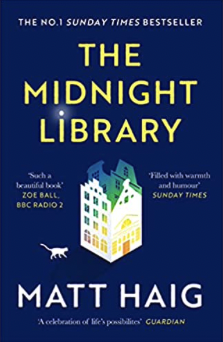
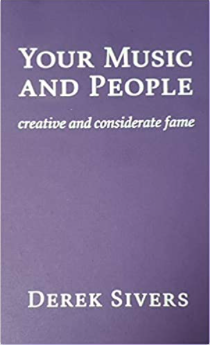

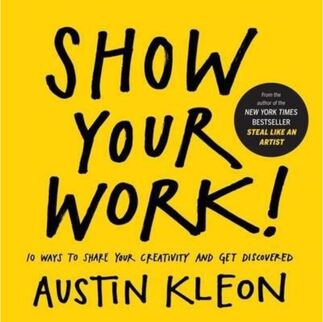
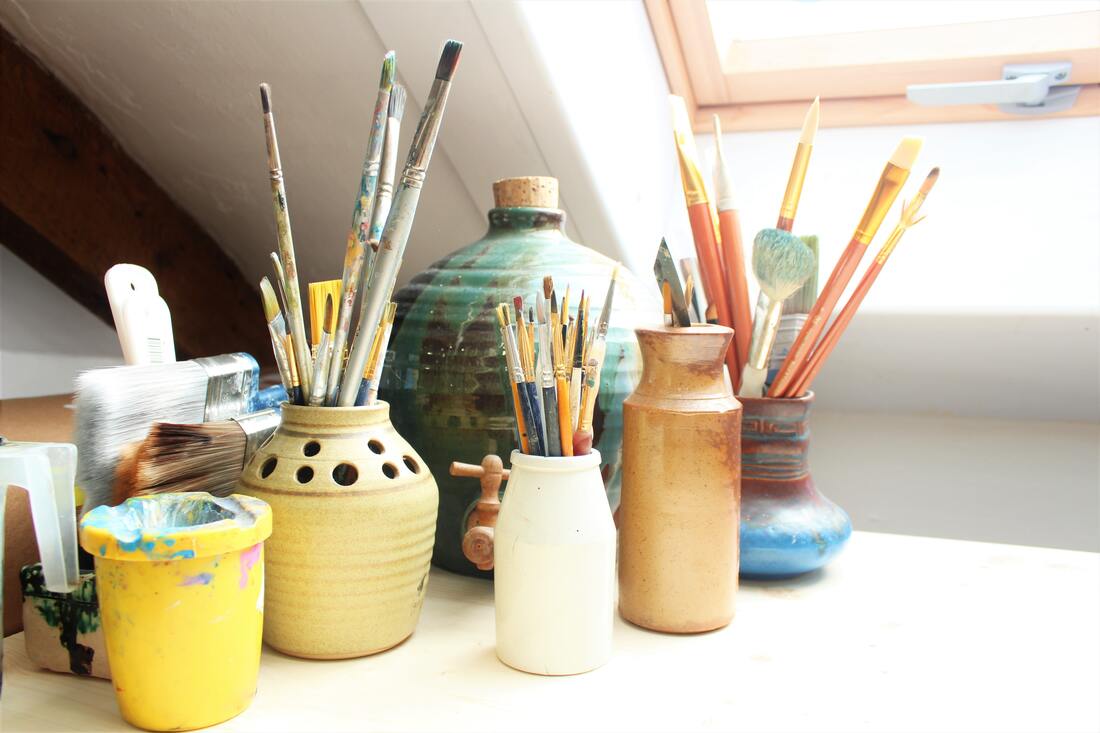
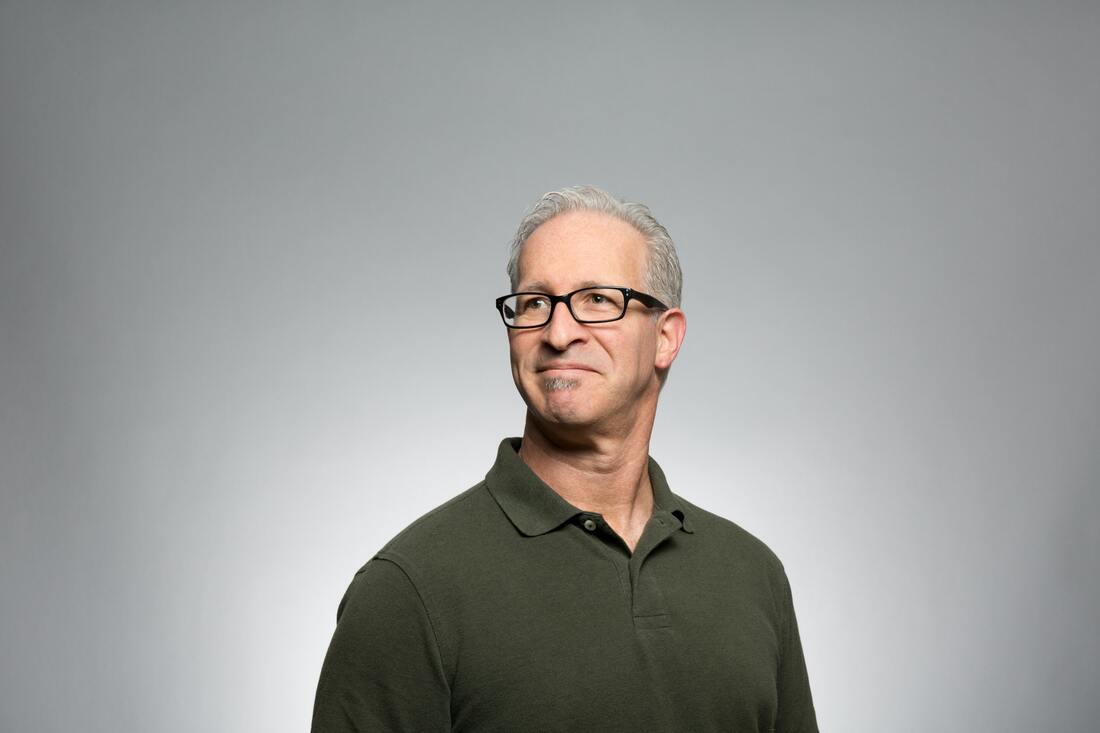

 RSS Feed
RSS Feed